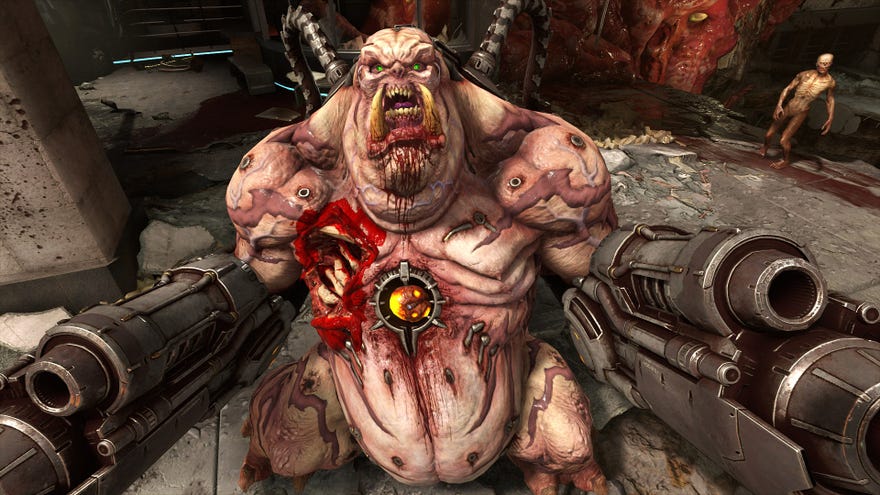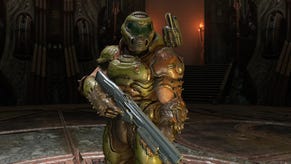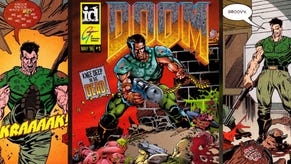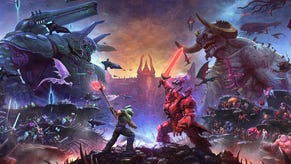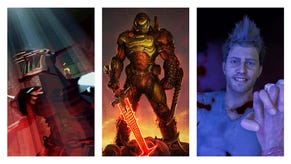Id Software explain what happened to Doom Eternal's OST and why they won't be working with Mick Gordon on their DLC
It's complicated
After the official soundtrack for Doom Eternal was released on April 18th to Collector's Edition owners, players quickly noticed that something sounded off. It turned out that there was a marked difference between the tracks Eternal's composer Mick Gorden had mixed himself and those done internally by Id Software. At the time, it was unclear why, though Gordon seemed displeased with the disparity. Id's executive producer Marty Stratton has published an open letter today offering their side of the story.
Based on Stratton's account, the situation around Doom Eternal's soundtrack seems to have come about after multiple attempts to compromise on scheduling, which ultimately resulted in a compromise in quality instead.
"Our challenges have never been a matter of creative differences," Stratton says. "Mick has had near limitless creative autonomy over music composition and mixing in our recent DOOM games, and I think the results have been tremendous."
Stratton says Id announced during E3 2019 that they would release Eternal's OST with the Collector's Edition of the game. At the time, Stratton says that they did not have Mick Gordon under contract for the OST itself. According to Id, they reached an agreement in January 2020 for Gordon to deliver the OST by March, in time to release with the CE. "The terms of the OST agreement with Mick were similar to the agreement on Doom (2016)," Stratton says, "in that it required him to deliver a minimum of 12 tracks, but added bonus payments for on-time delivery. The agreement also gives him complete creative control over what he delivers."
In February, Stratton says that Gordon contacted Id agreeing to the terms but asking for additional time and stating his hope to complete a total of 30 tracks. Stratton says that Id agreed to extend the deadline by six weeks and honor Gordon's bonus based on the new deadline. They would miss the ability to include the OST with the CE but wouldn't yet run afoul of the "consumer protection laws in many countries that allow customers to demand a full refund for a product if a product is not delivered on or about its announced availability date."
Apparently Id began getting nervous at the beginning of April. They set their Lead Audio Designer to work on compiling an Id version of the OST based on the pre-compressed versions of the tracks that had been included in the game. They wouldn't be the same as if they'd had access to Gordon's source files, but they were something. Stratton says that after notifying Gordon of their fallback plan, "Mick suggested that he and Chad (working on the back-up) combine what each had been working on to come up with a more comprehensive release." In the end, Stratton says that Gordon delivered 11 tracks for the OST, agreeing that Id's backup versions created from in-game music could fill out the rest of the tracklist.
Stratton feels that after the OST's launch, Gordon's comments to fans "generated unnecessary speculation and judgement" and, probably more importantly, "led some to vilify and attack an Id employee who had simply stepped up to the request of delivering a more comprehensive OST." Stratton says he feels it's his responsibility to respond on their behalf.
Gordon has not made any official statement since his original comments, though based on Stratton's breakdown of events, it seems like an unfortunate situation for all involved. Despite attempting to make compromises, art and capitalism are rarely comfortable bedfellows. To that end, Stratton says that "we are at the point of moving on and won’t be working with Mick on the DLC we currently have in production."
It's a shame, especially given how highly regarded Gordon's work appears to be among both fans and at Id. "His music is incredible, he is a rare talent, and I hope he wins many awards for his contribution to DOOM Eternal at the end of the year, Stratton says. Despite that, Stratton says in his letter that Gordon's comments "highlight a complicated relationship," between the composer and the studio. Unfortunately companies don't tend to tolerate complicated.
You can read the entirety of Stratton's open letter on Reddit.
